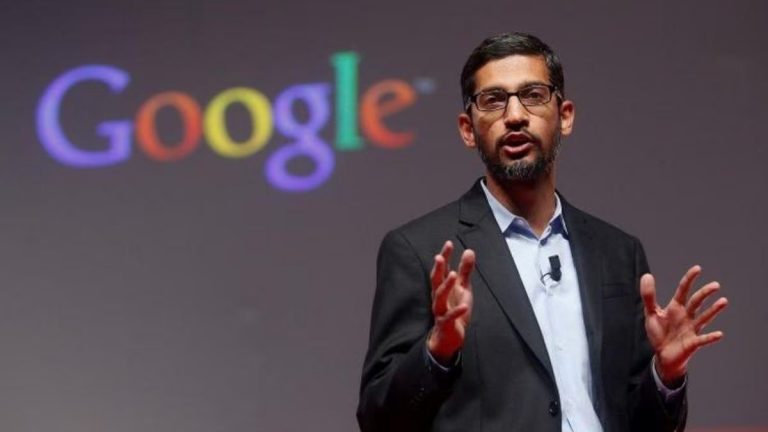
Google CEO Sundar Pichai has announced a game-changing update to the company’s flagship search engine, heralding a new era for how people interact with online information.
Speaking at The New York Times’ DealBook Summit on Wednesday, Pichai shared that by early 2025, Google Search will be capable of answering more complex and nuanced queries than ever before.
“I think we are going to be able to tackle more complex questions than ever before,” Pichai said. “I think you’ll be surprised, even early in ’25, the kind of newer things Search can do compared to where it is today.”
Register for Tekedia Mini-MBA edition 19 (Feb 9 – May 2, 2026): big discounts for early bird.
Tekedia AI in Business Masterclass opens registrations.
Join Tekedia Capital Syndicate and co-invest in great global startups.
Register for Tekedia AI Lab: From Technical Design to Deployment (next edition begins Jan 24 2026).
This bold vision is part of Google’s broader push to maintain its dominance in the face of stiffening competition as artificial intelligence (AI) revolutionizes the search landscape.
For over two decades, Google Search has been the go-to platform for finding information online, commanding over 90% of the global search engine market share. However, the AI revolution has stirred new competition, forcing Google to innovate at an accelerated pace to maintain its position.
Microsoft has emerged as a formidable challenger, integrating OpenAI’s generative AI models into its Bing Search. Features like AI-powered summaries, chat-style interfaces, and real-time enhancements have positioned Bing as a viable alternative, drawing significant attention in 2023.
In his remarks, Pichai directly addressed this rivalry. Responding to Microsoft CEO Satya Nadella’s earlier comment that Google should have been the “default winner” in the AI race, Pichai said, “I would love to do a side-by-side comparison of Microsoft’s own models and our models,” suggesting confidence in Google’s in-house AI innovations.
Pichai also took a subtle jab at Microsoft’s reliance on OpenAI, highlighting that Google has developed its models internally.
“When I look at what’s coming ahead, we are in the earliest stages of a profound shift,” he said. “There’s so much innovation ahead. We are committed to being at the state of the art in this field, and I think we are.”
Google has already begun reshaping its search engine with AI-powered features. These include AI-generated summaries for complex topics and updates to its Lens tool, which allows users to search the web using videos, text, and images.
The company’s upcoming Gemini model is poised to further this transformation. Designed as Google’s answer to Microsoft’s integration of OpenAI’s ChatGPT, Gemini is expected to redefine search with advanced generative AI capabilities, offering users more intuitive and context-aware results.
This innovation aims to address a central challenge, which is how to make search engines not only more powerful but also more personalized. Google seeks to solidify its position as the leader in online search while setting a new standard for the industry by leveraging AI to interpret user intent with greater accuracy.
Microsoft is not the only company challenging Google’s dominance. Smaller players like Perplexity AI, an AI-driven search engine, have also entered the fray, offering unique features tailored to niche audiences. Meanwhile, OpenAI’s ChatGPT has introduced a browsing tool, further blurring the lines between conversational AI and traditional search. The chatbot also reportedly plans to launch its own search.
Apple is reportedly exploring its own AI-powered search tools, potentially bypassing Google as the default search engine on its devices. Such developments underscore the intensifying race to dominate the future of search, fueled by rapid advancements in AI.
Why Google’s Transformation Matters
Google’s dominance in search has long been anchored by its unmatched access to data and robust infrastructure. However, the company now faces a dual challenge of innovating at the pace of its competitors while ensuring its search engine remains user-friendly and trustworthy.
The integration of AI into search is more than a technological shift as it represents a reimagining of how information is accessed and understood. With Microsoft making bold strides and new entrants experimenting with AI-driven tools, the need for Google to up the ante becomes greater.
Pichai’s promise of a transformative Google Search by 2025 signals the company’s determination to lead this next chapter in technology. Google is betting on innovation to not only retain but expand its dominance in a rapidly evolving digital ecosystem, by leveraging its expertise in AI and its legacy as the world’s leading search engine.



